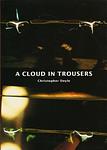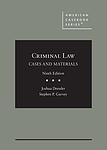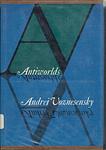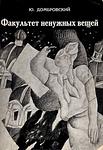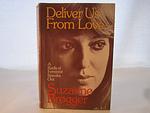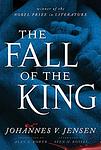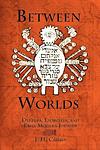The Greatest Russian, Danish "Fiction" Books Since 1900
Click to learn how this list is calculated.
This list represents a comprehensive and trusted collection of the greatest books. Developed through a specialized algorithm, it brings together 305 'best of' book lists to form a definitive guide to the world's most acclaimed books. For those interested in how these books are chosen, additional details can be found on the rankings page.
Genres
Countries
Date Range
Reading Statistics
Click the button below to see how many of these books you've read!
Download
If you're interested in downloading this list as a CSV file for use in a spreadsheet application, you can easily do so by clicking the button below. Please note that to ensure a manageable file size and faster download, the CSV will include details for only the first 500 books.
Download-
51. A Poem Without A Hero by Anna Akhmatova
The book is a profound reflection on the nature of memory, history, and the enduring impact of war. Through a series of interconnected poems, the work weaves together personal and collective experiences, focusing on the tumultuous events of the Russian Revolution and the subsequent Stalinist era. The poet grapples with the themes of loss, betrayal, and the search for redemption, while also paying homage to the artists and thinkers who suffered under repressive regimes. Rich in allusions and steeped in a complex interplay of voices and time periods, the narrative serves as a poignant meditation on the role of the poet and the power of poetry to bear witness to the tragedies of the past.
The 3737th Greatest Book of All Time -
52. Norma by Vladimir Sorokin
The book is a surreal narrative that delves into the life of a woman with an extraordinary physiological trait—her breast milk possesses remarkable healing properties. As word of her unique ability spreads, she becomes a valuable commodity in a society that is both fascinated and obsessed with the potential of her gift. The story unfolds in a dystopian world where the protagonist must navigate the complexities of exploitation, power, and the human condition, all while grappling with the implications of her own body's capabilities and the relentless demands placed upon her by those seeking to harness her unusual power for their own purposes.
The 3765th Greatest Book of All Time -
53. The Town Of N by Leonid Dobychin
The book is a modernist Russian novel that provides a vivid portrayal of provincial life in the early 20th century through the eyes of a young boy. The narrative is a mosaic of fragmented episodes and character sketches, capturing the peculiarities, hypocrisies, and small joys of the inhabitants of a typical Russian town. The protagonist's observations and experiences reflect the social changes and unrest of the period, offering a subtle critique of the era's norms and the impact of historical forces on everyday life. The novel's experimental style and disjointed structure mirror the confusion and transformation of a society on the brink of revolution.
The 3777th Greatest Book of All Time -
54. A Cloud In Trousers by Vladimir Mayakovsky
This early 20th-century poetic masterpiece blends revolutionary fervor with intense personal emotions, reflecting the tumultuous era of its creation. The work is a four-part epic poem that delves into the author's passionate and tumultuous love affair, juxtaposing his individual romantic experience with broader social and political upheaval. The poet's innovative use of language, rhythm, and imagery breaks from traditional forms, mirroring the chaotic spirit of the time and the poet's desire for both personal and societal transformation. Through vivid and often jarring metaphors, the poem conveys a sense of disillusionment with love and the contemporary social order, while also expressing a fervent hope for a new and better world.
The 3779th Greatest Book of All Time -
55. Cases by Daniil Kharms
The book is a collection of absurdist short stories that reflect the author's unique take on the Soviet reality of his time. Through a series of bizarre and darkly humorous vignettes, the author explores themes of meaninglessness, the breakdown of logic, and the unpredictability of human existence. His characters often find themselves in surreal situations that defy conventional understanding, highlighting the author's fascination with the illogical and the nonsensical. The work serves as both a critique of the societal norms of the era and an example of the avant-garde literary movement to which the author belonged.
The 3781st Greatest Book of All Time -
56. Zangezi by Velimir Khlebnikov
"Zangezi" is a complex avant-garde poem that blends elements of drama and epic literature to explore the themes of language, revolution, and cosmic philosophy. The work is structured around the titular prophet-like figure who communicates with both humans and celestial beings, delivering cryptic and prophetic messages. Through a series of chants, monologues, and dialogues, the text delves into the nature of existence and the power of words, employing a unique linguistic style that reflects the author's fascination with the transformative potential of language and his vision of a future shaped by a universal human culture. The poem is known for its experimental use of sound, language, and its radical departure from traditional narrative forms, reflecting the tumultuous changes of the early 20th century and the search for new means of expression.
The 3788th Greatest Book of All Time -
57. The Blue Book by Mikhail Zoshchenko
"The Blue Book" is a satirical collection of short stories that offer a humorous yet poignant commentary on the absurdities of life in Soviet Russia. Through a series of anecdotes and vignettes, the author captures the struggles of ordinary citizens as they navigate the complexities and contradictions of the Soviet system. With a sharp wit and a keen eye for irony, the stories delve into themes of bureaucracy, poverty, and the human condition, revealing the author's skepticism about the promises of the socialist state and the resilience of the Russian people in the face of societal challenges.
The 3791st Greatest Book of All Time -
58. In The Ravine by Anton Chekhov
"In the Ravine" is a poignant short story that delves into the life of a family in a small Russian village, exploring themes of greed, corruption, and the stark contrasts between the lives of the rich and the poor. Through the experiences of the protagonist, the narrative unfolds the complexities of rural existence, where familial relationships are strained by economic hardships and moral decay. The story paints a vivid picture of the social dynamics of the time, highlighting the ravine not just as a physical location but as a metaphor for the deep and divisive inequalities that run through the heart of the community.
The 3796th Greatest Book of All Time -
59. Christmas At The Ivanovs' by Alexander Vvedensky
"Christmas at the Ivanovs'" is a satirical play that delves into the absurdities of Soviet life during the early 20th century. The narrative unfolds during a Christmas celebration at the Ivanov family's home, where a series of bizarre and surreal events take place. The characters, including a detective, a poet, and various family members, engage in nonsensical dialogues and actions, reflecting the author's avant-garde approach to theater. The play critiques the disconnect between the state's ideological propaganda and the grim realities of everyday life, using dark humor and chaotic scenes to challenge the audience's perception of normalcy and rationality within a society under strict political control.
The 3798th Greatest Book of All Time -
60. Poem Of The Mountain by Marina Tsvetayeva
"Poem of the Mountain" is a lyrical masterpiece that delves into the emotional landscape of the human experience, as it traverses the metaphorical heights and depths of a mountainous terrain. The work is a rich tapestry of imagery and introspection, reflecting the author's profound connection to nature and the tumultuous journey of the soul. Through a series of evocative verses, the poem explores themes of isolation, passion, and the relentless search for spiritual transcendence, capturing the essence of the human struggle against the immensity of the natural world and the inner forces that drive us.
The 3799th Greatest Book of All Time -
61. The Return and Other Stories by Andrey Platonov
"The Return and Other Stories" is a collection of short narratives revolving around the theme of human struggle and resilience in the face of oppressive political regimes and harsh living conditions. The stories, set against the backdrop of Soviet Russia, explore the complexities of human nature, the power of hope, and the resilience of the human spirit. The characters, often ordinary people, grapple with existential questions and the harsh realities of life, providing a poignant critique of the socio-political landscape of the time.
The 3802nd Greatest Book of All Time -
62. Antiworlds by Andrey Voznesensky
"Antiworlds" is a collection of poetry that provides a glimpse into the Soviet Union during the Cold War era. The poems are characterized by their avant-garde style, exploring themes of love, politics, and the human condition. The book includes the author's reflections on his travels around the world, his experiences with other cultures, and his perspective on the political climate of his time. The poems are both personal and universal, offering a unique perspective on the world during a period of intense political and social change.
The 3802nd Greatest Book of All Time -
63. A School For Fools by Sasha Sokolov
The novel presents a fragmented and surreal narrative that delves into the mind of a young boy with a learning disability, attending a special school in the Soviet Union. Through a stream-of-consciousness style, the book explores the boy's experiences and perceptions, blending reality with fantasy, and time with memory. The protagonist's inner world is rich with poetic language and vivid imagery, reflecting his struggle to find his place in a society that marginalizes those who are different. The narrative structure defies conventional storytelling, offering a unique and challenging perspective on the nature of sanity, the power of institutions, and the complexity of the human psyche.
The 4025th Greatest Book of All Time -
64. Child 44 by Tom Rob Smith
In a 1950s Soviet Union gripped by fear and paranoia, Leo Demidov, a dedicated officer of the state security agency, is faced with a chilling reality: a series of brutal child murders that the government refuses to acknowledge. As Leo defies his superiors and embarks on a dangerous investigation, he becomes entangled in a web of political intrigue and personal danger, risking everything to uncover the truth and protect those he loves. "Child 44" is a gripping thriller that explores the dark underbelly of a repressive regime and the resilience of one man determined to bring justice to a society plagued by secrets.
The 4026th Greatest Book of All Time -
65. The Burn: A Novel in Three Books : (late Sixties--early Seventies) by Vassily Aksyonov
"The Burn: A Novel in Three Books : (late Sixties--early Seventies)" is a historical novel that explores the cultural and political landscape of the Soviet Union during the late 1960s and early 1970s. The book follows a group of intellectuals, artists, and dissidents who are striving to preserve their individuality and freedom in a society that is increasingly oppressive and conformist. The narrative is punctuated by surreal and fantastical elements, reflecting the characters' struggle to maintain their sanity and dignity in a world that seems to be spiraling into madness.
The 4053rd Greatest Book of All Time -
66. The Life of Insects by Victor Pelevin
"The Life of Insects" is a surreal novel that explores the complexities of post-Soviet Russia through the lens of a bizarre seaside community of humans who transform into various types of insects. The narrative unfolds through a series of interconnected stories that delve into the characters' struggles, dreams, and fears, serving as a metaphor for the human condition. The book provides a satirical commentary on society's ills, touching on themes of capitalism, corruption, and the search for identity in a rapidly changing world.
The 4061st Greatest Book of All Time -
67. The Faculty of Useless Knowledge by Yuri Dombrovsky
"The Faculty of Useless Knowledge" delves into the life of a historian caught in the oppressive atmosphere of Stalinist Russia. The narrative explores the intellectual and emotional turmoil of the protagonist, who is ensnared in the brutal machinery of the Soviet state's ideological and bureaucratic control. Through his experiences and reflections, the book examines themes of memory, history, and the struggle to maintain intellectual integrity in a repressive society. The protagonist's journey is a poignant commentary on the value of knowledge and the human spirit's resilience against totalitarian forces.
The 4078th Greatest Book of All Time -
68. The Zone by Sergei Dovlatov
"The Zone" is a semi-autobiographical novel that follows the life of a writer who is confined to a Soviet labor camp. Through a series of vignettes, the protagonist reflects on his experiences in the camp, the absurdities of the Soviet system, and the struggles of maintaining his identity and integrity in the face of oppression. With dark humor and sharp observations, the book offers a poignant and satirical portrayal of life in the Soviet Union.
The 4082nd Greatest Book of All Time -
69. Farewell To Matyora by Valentin Rasputin
The book is a poignant exploration of the tension between progress and tradition, set in a small Siberian village that is doomed to be submerged by the construction of a hydroelectric dam. As the government mandates the relocation of the village's inhabitants, the narrative delves into the lives of the villagers who are grappling with the loss of their ancestral home and way of life. The story is a meditation on the cost of modernization, the deep connection between people and their land, and the inevitable passing of time that brings change, often at the expense of cultural heritage and personal identity. Through the villagers' resistance and sorrow, the novel examines themes of environmental impact, the clash of ideologies, and the resilience of the human spirit in the face of displacement.
The 4094th Greatest Book of All Time -
70. Pushkin House by Andrey Bitov
The novel in question is a complex and multi-layered exploration of Soviet intellectual life, following the story of a literary scholar who becomes deeply entangled in his research on the life of a fictional 19th-century Russian poet. As the protagonist delves into the poet's work and biography, his own life begins to mirror the subject of his study, leading to a blurring of past and present, reality and fiction. The narrative weaves together themes of identity, history, and the power of literature, all set against the backdrop of the oppressive atmosphere of the Soviet Union, where the quest for personal and artistic freedom is fraught with peril and contradiction.
The 4140th Greatest Book of All Time -
71. The Copenhagen Trilogy: Childhood; Youth; Dependency by Tove Irma Margit Ditlevsen, Tiina Nunnally, Michael Favala Goldman
"The Copenhagen Trilogy" is a collection of three autobiographical novels by Tove Ditlevsen, chronicling her life from childhood to adulthood in Copenhagen. The first book, "Childhood," explores Ditlevsen's difficult upbringing in a working-class family, while "Youth" delves into her teenage years and early adulthood, including her struggles with addiction and mental illness. The final book, "Dependency," examines Ditlevsen's relationships and her battle with addiction, culminating in her eventual recovery. Through her candid and introspective writing, Ditlevsen offers a poignant and powerful portrayal of the human experience.
The 4162nd Greatest Book of All Time -
72. Creatures that Once Were Men by Maxim Gorky
"Creatures that Once Were Men" is a collection of short stories that depict the harsh realities of life in the lower classes of Russian society. The stories are set in a night refuge for the homeless, where the characters, despite their grim circumstances, strive to maintain their humanity. Through their struggles, the author explores themes of poverty, addiction, despair, and the human spirit's resilience.
The 4162nd Greatest Book of All Time -
73. Deliver Us From Love by Suzanne Brogger
"Deliver Us From Love" is a provocative exploration of the complexities of love and human relationships, set against the backdrop of contemporary society. The narrative delves into the lives of various characters, each grappling with their own romantic and existential dilemmas. Through a series of interconnected stories, the book examines the paradoxes of love—its capacity to both liberate and imprison individuals. The author challenges conventional notions of love, fidelity, and happiness, offering a candid and often unsettling look at the desires and contradictions that drive human behavior.
The 4407th Greatest Book of All Time -
74. The Fall Of The King by Johannes V. Jensen
The book is a historical novel set in 16th-century Denmark, telling the story of Mikkel Thøgersen, a student who becomes embroiled in the political and social upheavals of the time. As he rises and falls in fortune, Mikkel interacts with various historical figures, including King Christian II, navigating the complexities of power, ambition, and rebellion. The narrative explores themes of destiny, the nature of leadership, and the tumultuous period of the Count's Feud in Denmark, painting a vivid picture of the era's culture and the human condition amidst the backdrop of a country in turmoil.
The 4471st Greatest Book of All Time -
75. The Dybbuk by S. Ansky
The book is a seminal work in Yiddish literature and folklore, centering around the concept of a dybbuk—a malicious possessing spirit from Jewish mythology. The narrative follows the tragic tale of a young bride in a Polish shtetl who becomes possessed by the restless spirit of her dead lover, who had been wronged by his own father and her father's broken pledge. The possession leads to a dramatic exorcism and a series of events that explore themes of love, betrayal, and the clash between the mystical and the rational, as well as the boundaries of life and death. The story delves into the rich tapestry of Jewish mysticism, community, and tradition, reflecting the cultural and religious tensions of Eastern European Jews before the First World War.
The 4478th Greatest Book of All Time
Reading Statistics
Click the button below to see how many of these books you've read!
Download
If you're interested in downloading this list as a CSV file for use in a spreadsheet application, you can easily do so by clicking the button below. Please note that to ensure a manageable file size and faster download, the CSV will include details for only the first 500 books.
Download


